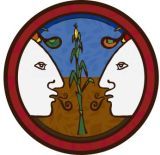Our recycling project is aimed at creating a more efficient system of processing recyclable material both at the Pop Wuj language school (www.pop-wuj.org) and in some of the communities where Pop Wuj runs other projects. The goal is to not only reduce the amount of waste produced by the school and rural communities but also to promote recycling in rural communities. Additionally, collecting recyclables helps reduce the amount of plastic that families in the rural communities burn. Families often burn plastic to cook their food because it’s abundant and burns slower.We currently collect recyclable material from the Family Support Center in Llanos de Pinal, but we are looking for a way to increase the practice of recycling in more rural communities while not adding more expenditure to Pop Wuj’s budget. There are some local recycling companies in Xela that will pay for recyclables by the pound, but after paying for transportation to the sites to drop off the material there isn’t much left over to give back to the community from which we received the recyclables. There’s a long way to go but we are working slowly but surely to make progress.
The ongoing reforestation project is back with the rainy season. We are planning to hold a benefit in Xela to raise money to buy seedlings that can be planted in the communities where we work. Additionally, a group of women from San Juan Buena Vista have formed a group to run a nursery for seedlings to be used for reforestation. This week we will be going to visit their nursery and gain more information about their project so we can support them in whatever way possible. The group came out of a group of women who received stoves and were inspired to do more for reforestation. Not only does the group have positive environmental impact but it’s a way for the women of the community to organize and empower themselves.
Finally, the nursery (formerly greenhouse) at the Family Support Center continues to be a focus of the environmental program. Much of the information about the nursery can be found above, but our current aim is to find funding to revamp the nursery to put it back into full use. We are also looking for a way to make the nursery self-sustaining, in other words, not in need of continual funding for such necessities as organic fertilizer, chicken wire and plastic tubing to repair unenclosed areas, and wood to repair the door. We will also be going to the nursery this week to work on fixing it up and see what is possible for developing it in the future.







